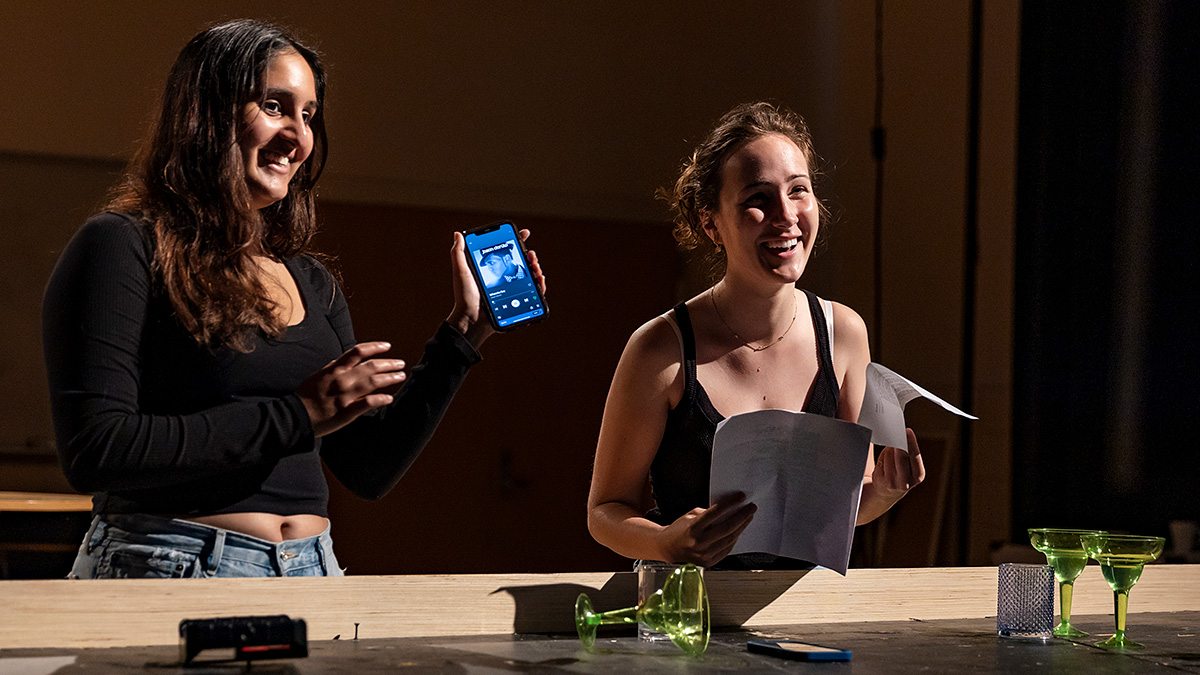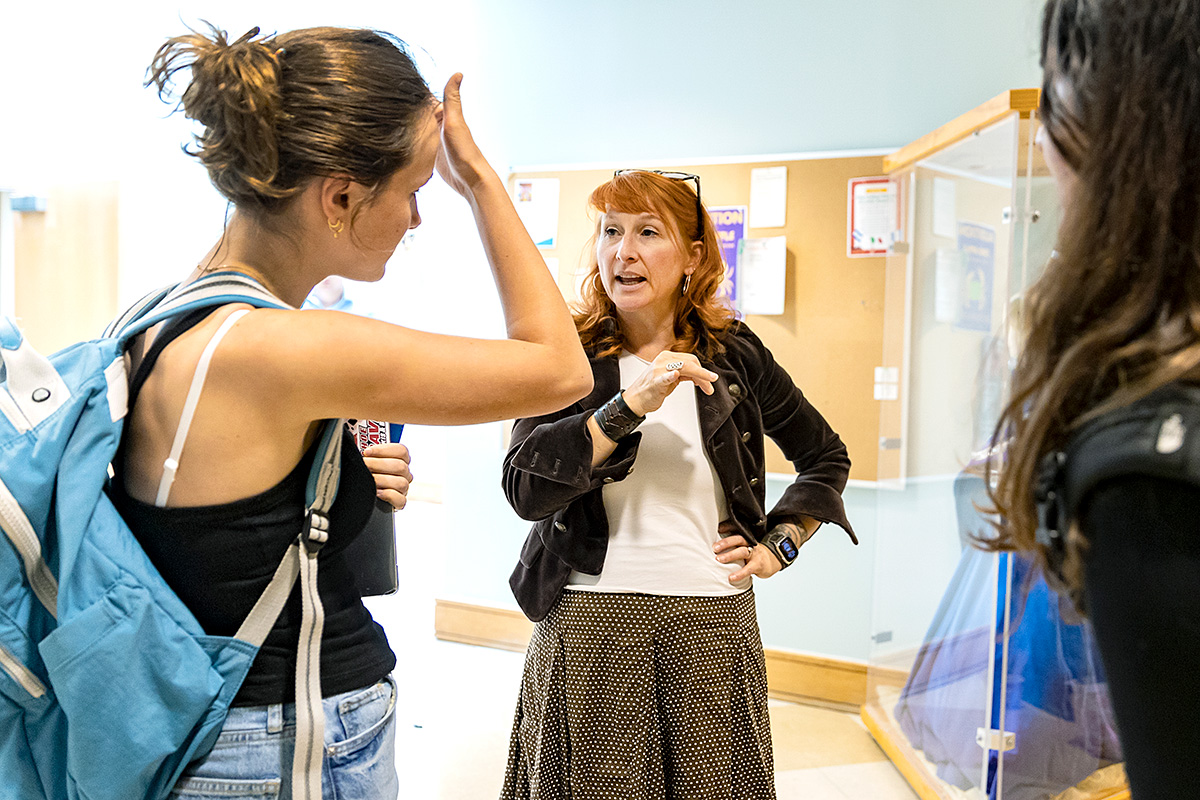Maymester course turns Tar Heels into scriptwriters
Students in Maymester's "Writing for the 30-Minute Comedy” course collaborated with Tar Heels from "Acting for the Camera" and "Directing for the Camera" to write and produce scenes for a sitcom in just three weeks.

By the end of her first year at Carolina, rising sophomore Marion Dewey had spent months in the classroom exploring the humanities and sharpening her writing skills. As the semester wrapped up, she was looking for a chance to write more before beginning her computer science studies this fall.
Dewey didn’t necessarily want to write article reviews or essays. Instead, she wanted to tackle something more creative — something that would explore a new process.
She found that opportunity during UNC Summer School’s three-week Maymester.
Over the past few weeks, Dewey spent her days as a sitcom writer in the “Writing for the 30-Minute Comedy” course. The class was part of a three-course collaboration with Acting for the Camera and Directing for the Camera, where students teamed up to write and produce two scenes for a show at the end of Maymester.
“This class sounded awesome, so I chose to take it,” Dewey said. “It was really fun, and I had never done anything like it.”
Tracy Bersley and Aubrey Snowden from the College of Arts & Sciences’ dramatic art department led the intensive course, with Bersley working most closely with Dewey and the course’s two other scriptwriters. The class, Bersley said, is a crash course in television writing, starting with the basics of the craft and rapidly building up to calling “action.”
“The big thrust is to help students understand the structure of TV comedy, and that has many aspects,” said Bersley, an assistant professor in the College and a movement coach at PlayMakers Repertory Company. “First, it is understanding the overall arc of a season versus the arc of a pilot episode versus the arc of a single episode within the bigger arc of the season. We often start by thinking about what is the world that they’re building and what is the story within that world, who is in that world.”

Over the span of just three weeks, Tracy Bersley guides students to write two fully-scripted scenes from their sitcom. (Photo by Johnny Andrews/UNC-Chapel Hill)
For their sitcom, Dewey and her fellow writers created a world centered around a seasoned politician eyeing a presidential run. But when the politician hits an obstacle and can no longer run herself, she finds a county commissioner from a rural town to coach into a presidential candidate instead.
“He’s just a super likable guy with nothing really going on,” Dewey said of the main character. “His character has been really funny to write.”
Bersley worked with the students to flesh out the nuances of the characters and develop a storyline for a real scene. The course teaches students about physical comedy, timing, character development, body language and story architecture so that they can create a scene ready for actors. To do all of that in just three weeks, Bersley admits, is a daunting task but one that students step up to achieve.
“It feels a bit like jumping into the deep end or just getting your hands dirty and figuring it out on the fly,” she said. “We often say this is never going to be enough time to make it perfect. We just go in and do it so you can get your hands dirty. Little by little, it gets better and better.”
The scriptwriting students worked closely with the students from the directing and acting courses throughout the three weeks to get feedback and strengthen the story. The classes culminated with the opportunity to shoot two scenes for the pilot episode, with the three groups working together to bring the scenes to life by filming across campus.

The class was part of a three-course collaboration with Acting for the Camera and Directing for the Camera, where students teamed up to write and produce two scenes for a show at the end of Maymester. (Photo by Johnny Andrews/UNC-Chapel Hill)
Dewey said that seeing her work come to life from the script was a special experience and has given her a new appreciation for the work behind the shows she watches.
“It was really cool,” she said. “It’s obviously a very fun process to hang while the director is doing their thing. But I realized how neat it is and how special it is to have other people have real-time interpretations of something you’ve created. That’s really cool to watch, and it ends up looking really different than the way you thought it in your head. That’s even cooler.”
The ability to work alongside other creative people and hear others act out the words they have written also leads to skills that Bersley says are transferable to any career.
“Whether they become artists in any way or whether they’re just citizens of the world in a totally different profession, it’s thinking about what message they’re carrying across to humanity. I think there is storytelling at every turn. The goal is to help them think about the bigger poetic picture of life,” she said. “It’s also about confidence — finding that way to walk into a room and say, ‘This is my idea, and this is why I stand behind my idea.’ That’s a skill anybody can use in any situation.”




